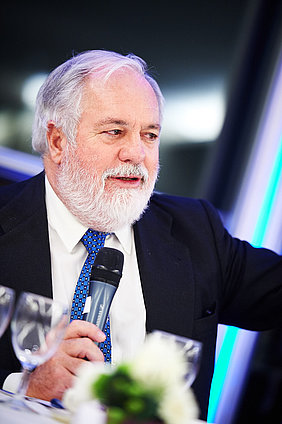
The Paris Agreement of December 2015 allowed us to reach a historical, universal, and legally binding global climate deal. We can pride ourselves in saying that the European Union has been a key player in the fight against climate change by setting itself an aspiring pledge to reduce our greenhouse gas emissions by 40% in 2030.
The COP23 of last November in Bonn has allowed us to continue delivering on our promises made in Paris. As we have demonstrated, Europe is committed to translate ambition into action. In this sense, COP23 has been a key moment to ensure that we are on track to meet our first deadline: completing the Paris work programme by 2018. Furthermore, we have demonstrated clear progress on the transparency framework and the 5-year ambition cycle aimed at helping countries make progressively more ambitious contributions.
In order to achieve our Paris Climate goals and keep the European Union competitive as the clean energy transition changes global energy markets, we have proposed several initiatives through our "Clean Energy for All Europeans" package.
The Energy Performance of Buildings Directive and the revised Energy Efficiency Directive which are part of the Clean Energy package, are particularly salient to this year's thematic at E-world, the "Smart City", and will aid the transition to a low-carbon economy. Through these Directives we will facilitate the construction of electric charging points in both private residences and workplaces, target a 30% binding reduction of our energy consumption by 2030 (compared to 2007 levels), and fight energy poverty as well as bring new requirements for metering in relation to natural gas, district heating, cooling and domestic hot water.
These will follow the notion that energy will be digitalised further in the future. Our Horizon2020 programme includes digitalisation in every ongoing energy research, technology and innovation project.
Decarbonising the transport sector is essential to achieve our energy and climate objectives. This is why the Commission has proposed a wide-ranging transport package that takes action for clean, competitive and connected mobility. Its initiatives aim to reduce CO2 emissions, air pollution and congestion, and encourage smart road charging.
None of the above can work without investment. We all know the energy sector is crucial to the European economy. At the same time, it also makes up for two thirds of greenhouse gas emissions, which is why it will be of vital significance to implement the Paris Agreement. To reach the EU's 2030 energy and climate targets, it is estimated that about € 379 billion of investment will be needed every year between 2020 and 2030, mostly in energy efficiency, renewable energy sources, and infrastructure.
This is at the same time an enormous chance to stimulate jobs and growth. As such, the energy and climate measures announced in the clean energy for all Europeans package, adopted in November last year, could boost the EU’s GDP by up to 1% in 2030, pumping an additional €190 billion into the EU’s economy and creating up to 900,000 new jobs. This is an opportunity we should seize.
I wish every success to this year's E-world energy & water edition which, I am sure, will allow for a fruitful discussion and exchange of innovative solutions.
Miguel Arias Cañete
Member of the European Commission